Last Updated:
February 2, 2026
Creating a healthy and attractive lawn in New Jersey is all about using the right grass seed. Different grass varieties offer unique strengths. Some turf types excel in sunny, open yards, while others thrive in shaded or high-traffic areas. The guide below covers some of the most popular turfgrass options for New Jersey and the traits you should consider when seeding your lawn.
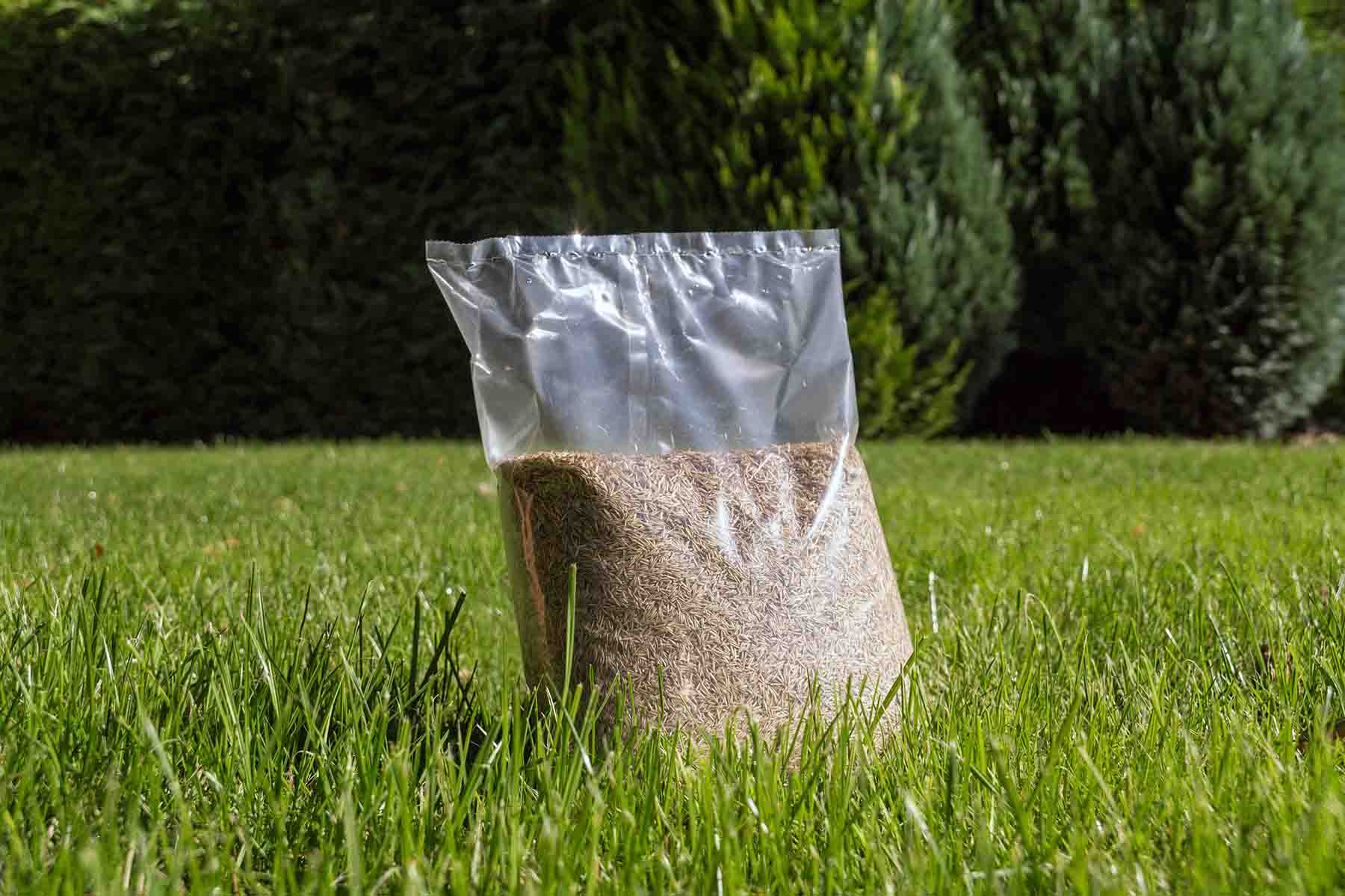
New Jersey sits in what’s known as the transition zone, meaning both cool-season and warm-season grasses can grow here. However, cool-season grasses are more common throughout most of the state because they flourish during New Jersey’s cooler spring and fall months. These grass types grow best in temperatures between 60 and 75 degrees and typically go dormant during the heat of summer or extreme winter cold.
Warm-season grasses are sometimes used in the southern parts of the state, where summers are longer and hotter. Many New Jersey homeowners also use blends or mixtures of cool-season grasses to get the best of several different turf qualities.
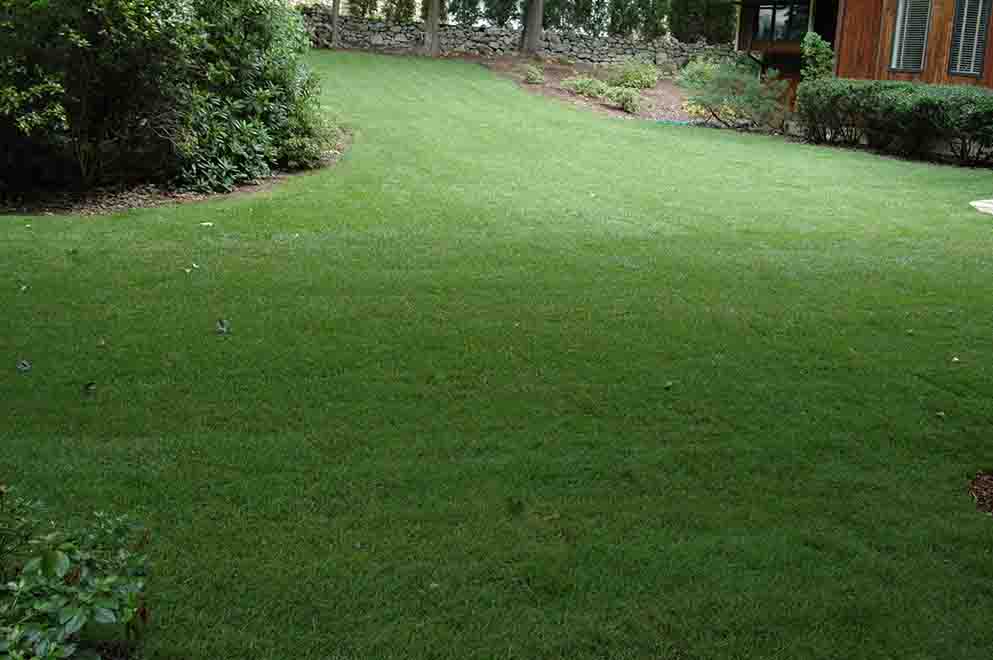
Kentucky bluegrass is often considered the “classic” lawn grass of the Northeast. It’s well-loved for its rich green color, soft feel underfoot, and ability to create a dense, carpet-like lawn. This species spreads through underground rhizomes, which means it can fill in bare patches and recover relatively quickly from wear. Kentucky bluegrass thrives in full sun and does best in areas with consistent watering.
While this grass produces a beautiful lawn, it is also one of the more maintenance-heavy cool-season options, requiring regular fertilization and irrigation to stay lush. It’s often blended with other grasses to increase drought or shade tolerance.
Attributes:

Tall fescue has become increasingly popular in New Jersey because of its exceptional adaptability. It performs well in full sun but also tolerates partial shade, making it ideal for lawns with mixed conditions. Unlike fine fescues, tall fescue has a slightly coarser blade, though newer turf-type cultivars offer a more refined appearance.
One of the main advantages of tall fescue is its deep root system, which helps it withstand drought and heat better than many other cool-season grasses. It grows in bunches but forms a dense turf when properly maintained.
Attributes:
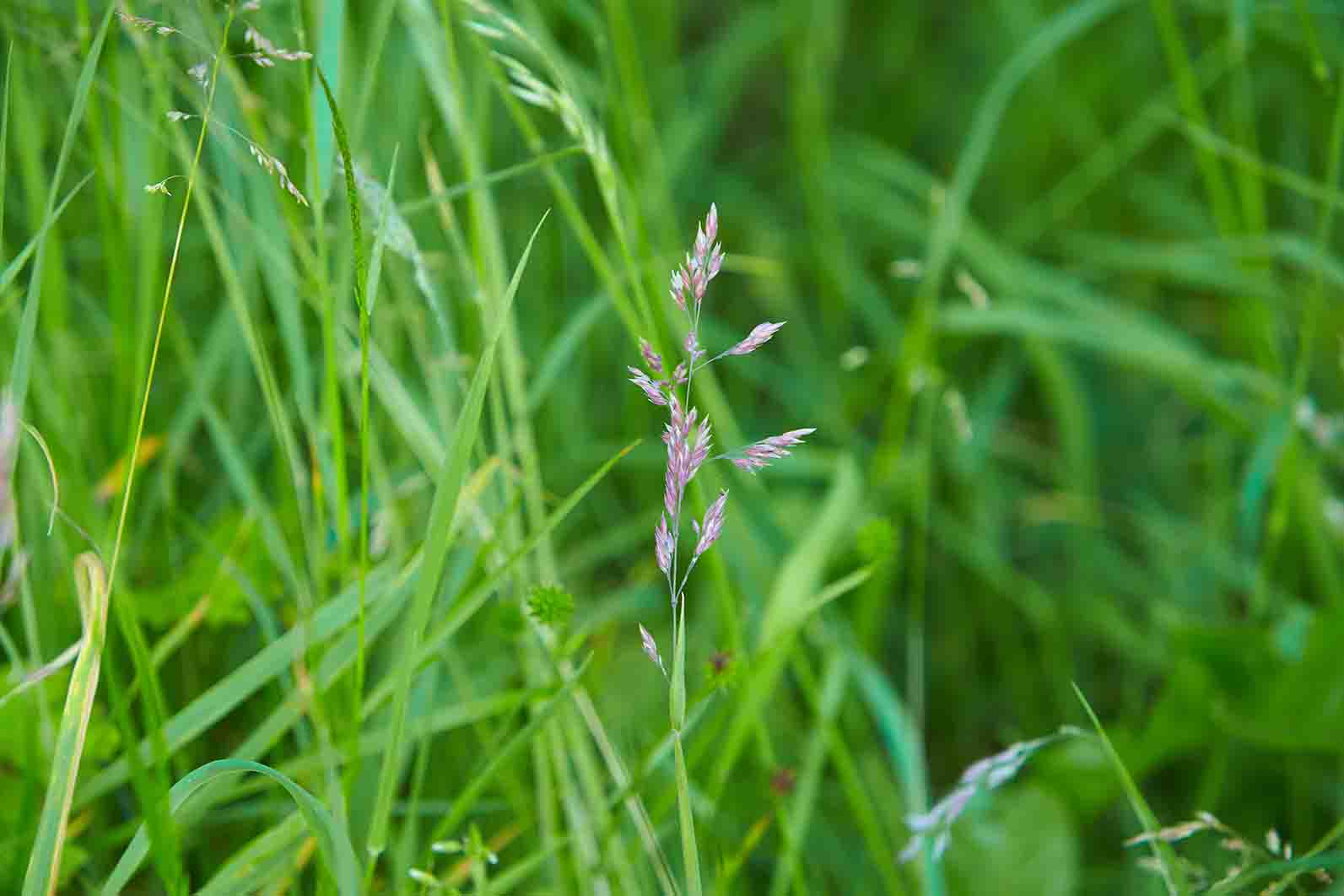
Fine fescues are a group of grasses, including creeping red, chewings, hard, and sheep fescue, that share narrow, soft blades and a naturally elegant look. These grasses are the most shade-tolerant cool-season turf options, thriving in areas where other grasses may thin out or struggle to grow.
Fine fescues require minimal fertilization and watering, making them a great choice for low-maintenance lawns. However, they don’t handle heavy foot traffic as well as tall fescue or ryegrass, and they recover slowly if damaged.
Attributes:
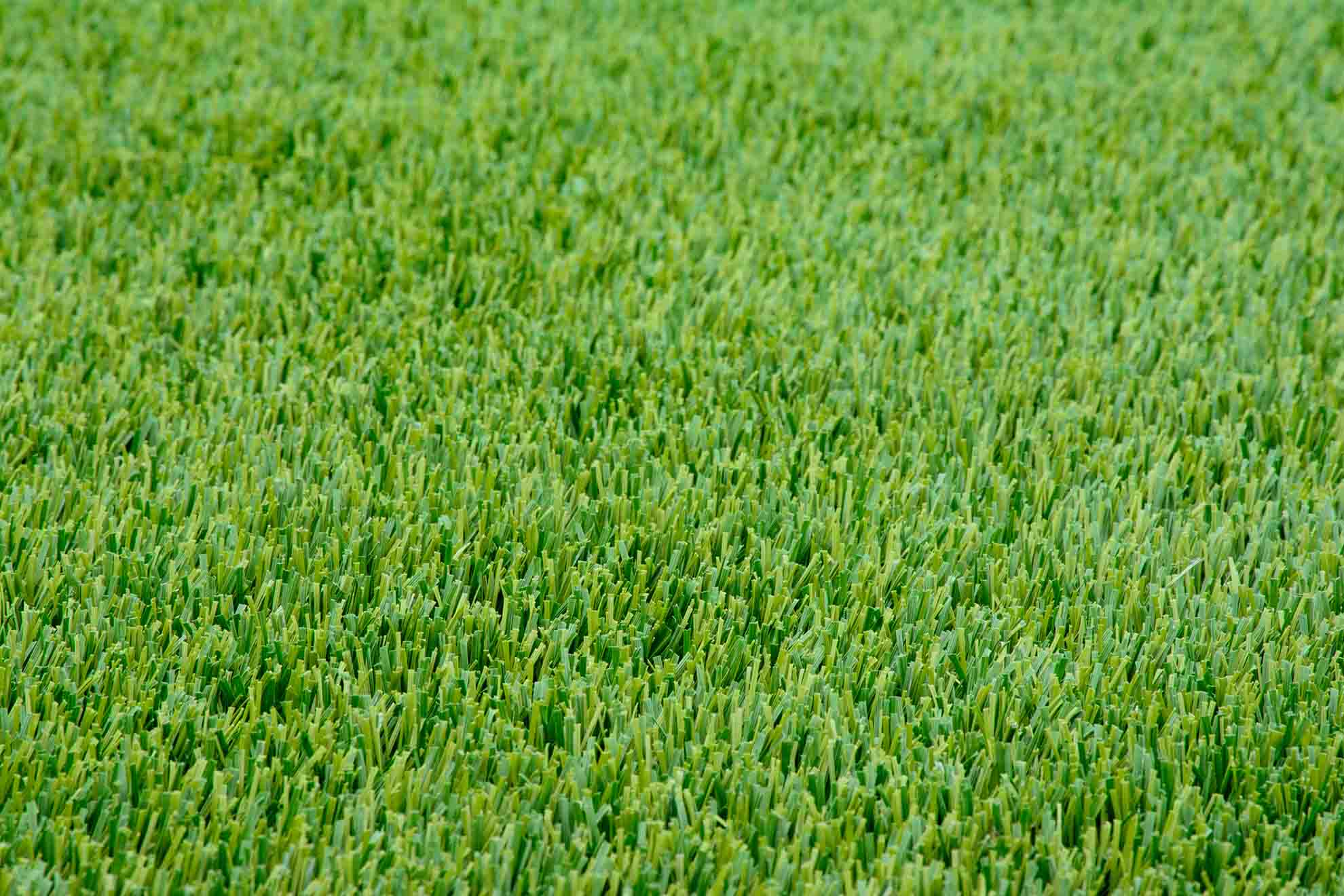
Perennial ryegrass is known for its quick germination and fast establishment, making it a popular choice for overseeding and repairing thin lawns. Unlike Kentucky bluegrass, this is a bunch-type grass, meaning it doesn’t spread underground but grows upward in clumps. Its blades have a fine-to-medium texture and a natural glossy sheen.
Because it germinates so quickly, perennial ryegrass is often used in blends to create rapid coverage while slower-growing grasses, like Kentucky bluegrass, establish themselves over time. It performs best in sunny areas and tolerates moderate wear.
Attributes:
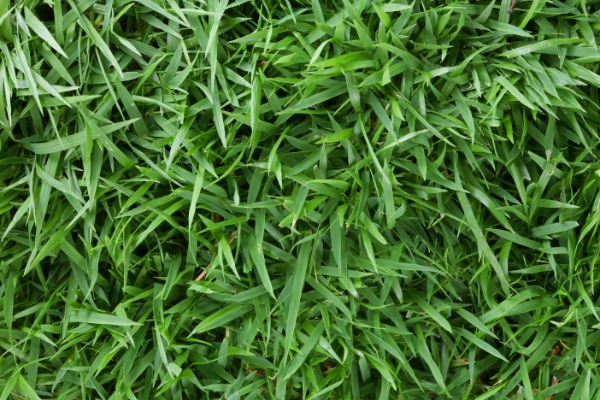
Although New Jersey is primarily a cool-season state, Zoysiagrass can be a strong choice for homeowners in the southern and coastal regions who prefer a warm-season lawn. Zoysia is heat-loving, drought-tolerant, and develops a thick, weed-resistant turf once established.
Unlike cool-season grasses, Zoysia turns brown after the first frost and stays dormant through winter, greening up again when temperatures rise in late spring. It grows slowly compared to other grasses but forms a dense mat that requires fewer mowings and less watering once mature.
Attributes:
When selecting a turfgrass variety, consider your lawn’s sun exposure, watering habits, foot traffic, and desired maintenance level. Kentucky bluegrass delivers a classic look but needs more care, while fine fescues provide low-maintenance beauty in shaded areas. Tall fescue and ryegrass strike a good balance for most residential lawns, and Zoysia can be a solid warm-season option for the state’s southern regions.
If you need help deciding which grass seed to use in your new or existing lawn, professional assistance is always the safest bet. For more information, or to find out about the best lawn seeding services in New Jersey, call Healthy Lawn today!